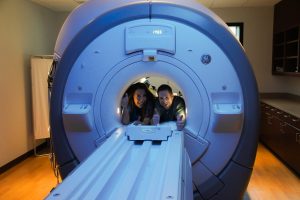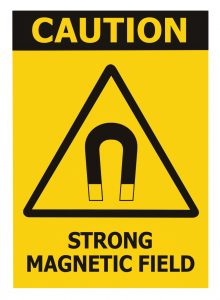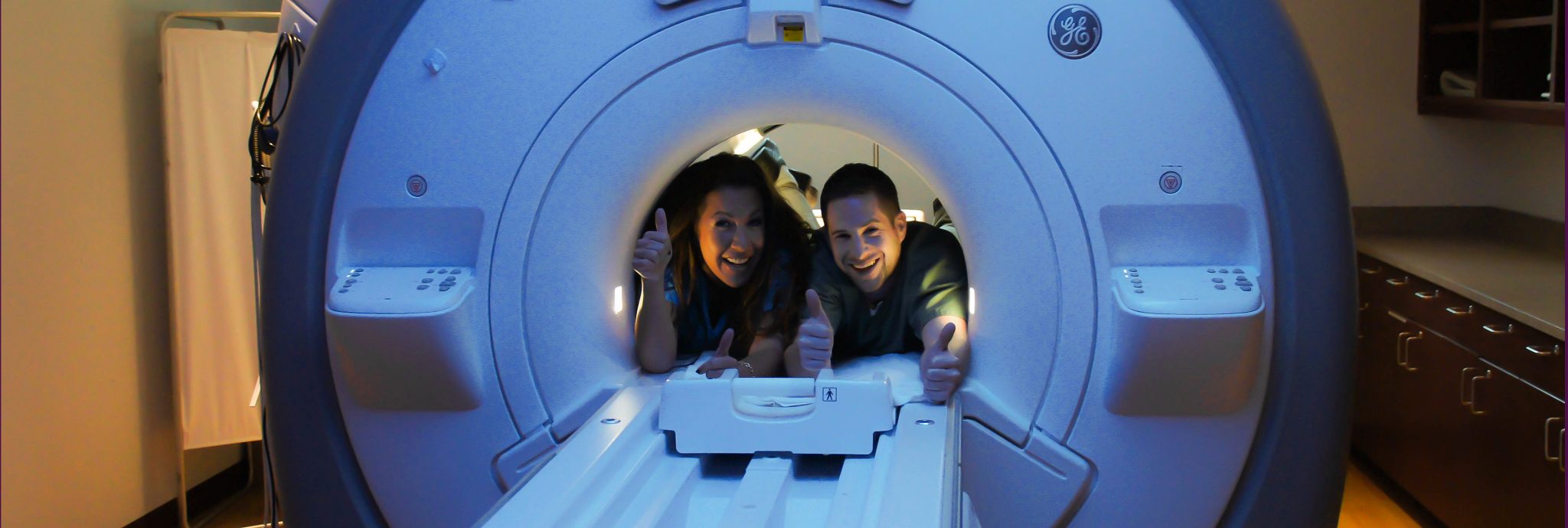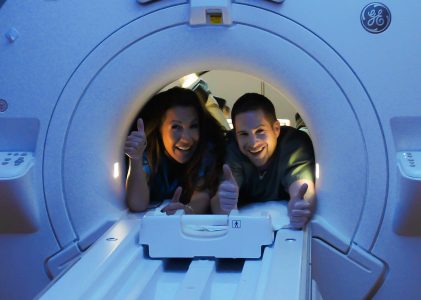
Magnetic Resonance Imaging (MRI) is an imaging technique that uses powerful magnets, radio waves, and a computer to create images of physiological processes and anatomy of the body to help doctors diagnose disease, injury, or progress with treatments. Learn more about MRI safety, how to stay safe around the powerful magnets and tips to prepare for your MRI at Radiologyinfo.org.
The powerful magnetic field of the MR system can attract objects made from certain metals (i.e., known as ferromagnetic) and cause them to move suddenly and with great force. This can pose a possible risk to the patient or anyone in the object’s “flight path.” Therefore, great care is taken to be certain that external objects such as ferromagnetic screwdrivers and oxygen tanks are not brought into the MR system area. As a patient, it is vital that you remove all metallic belongings in advance of an MRI exam, including external hearing aids, watches, jewelry, cell phones, and items of clothing that have metallic threads or fasteners. Additionally, makeup, nail polish, or other cosmetics that may contain metallic particles should be removed if applied to the area of the body undergoing the MRI examination.

The powerful magnetic field of the MR system will pull on any iron-containing object in the body such as a medical implant, certain aneurysm clips or certain medication pumps. Every MRI facility has a comprehensive screening procedure and protocols. When carefully followed, these steps ensure that the MRI technologist and radiologist know about the presence of any metallic implants and materials in the patient. Special precautions can usually be taken. In some unusual cases, due to the presence of an unacceptable implant or device, the exam may have to be canceled. For example, the MRI exam will not be performed if a ferromagnetic aneurysm clip is present because there is a risk of the clip moving and causing serious harm to the patient. In some cases, certain medical implants can heat substantially during the MRI exam as a result of the radiofrequency energy that is used for the procedure. This heating may result in an injury to the patient. Therefore, it is very important to inform the MRI technologist about any implant or other internal object that you may have prior to entering the MR scanner room.
The powerful magnetic field of the MR system may damage an external hearing aid or cause a heart pacemaker, electrical stimulator, or neurostimulator to malfunction or cause injury. If you have a bullet or any other metallic fragment in your body there is a potential risk that it could change position and possibly cause an injury.
In addition, a metallic implant or other object may cause signal loss or alter the MR images making it difficult for the radiologist to see the images correctly. This may be unavoidable, but if the radiologist knows about it, allowances can be made when obtaining and interpreting the MR images.
For some MRI exams, a contrast material known as a gadolinium contrast agent may be injected into a vein to help improve the information seen on the MR images. Unlike the contrast materials used in x-ray exams or computed tomography (CT) scans, a gadolinium contrast agent does not contain iodine and, therefore, rarely causes an allergic reaction or other problem. However, if you have a history of kidney disease, kidney failure, kidney transplant, liver disease, or other conditions, you must inform the MRI technologist and/or radiologist before receiving a gadolinium contrast agent. If you are unsure about the presence of these conditions, please discuss these matters with the MRI technologist or radiologist prior to the MRI examination.
This post first appeared here: https://www.radiologyinfo.org/en/info/safety-mr
Learn more about MRI Safety at GWIC, with an educational video to help our patients and the community better understand MRI safety and how to prepare for your exam.


